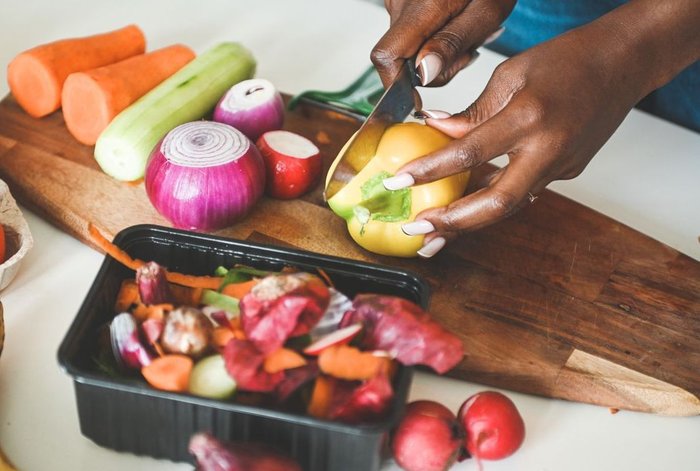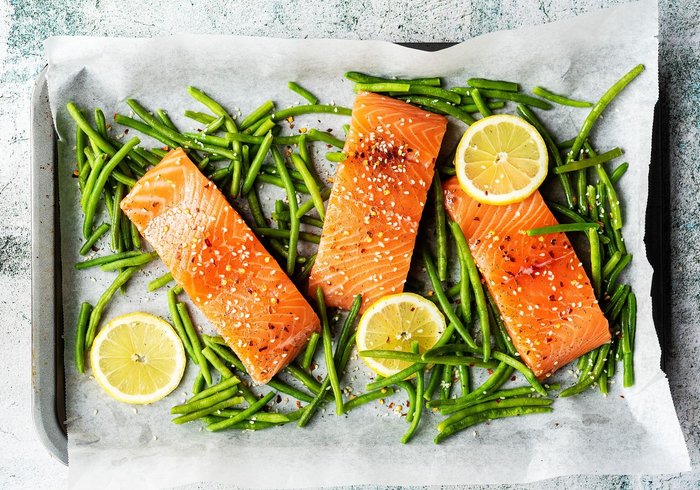People of African or Caribbean heritage have a higher chance of developing diabetes, high blood pressure and heart problems. If diabetes or high blood pressure aren’t well controlled, they can lead to kidney disease.
To support good kidney health, as well as overall health and wellbeing, starting with a balanced diet based on the Eatwell Guide can be a helpful foundation. This version of the Eatwell Guide has been adapted to reflect foods commonly enjoyed in African and Caribbean diets. If you'd like to learn more about eating well, speak to your kidney dietitian.

Carbohydrates – quantity and quality matter
Carbohydrates give your body energy, but eating too much, or selecting less healthy types of carbohydrate, can affect your blood sugar, which may in turn put extra strain on your kidneys.
- The amount matters because large portions can lead to weight gain and high blood sugar.
- The type (quality) matters because whole foods, which have more fibre, help keep your blood sugar steady.
Foods like yams, rice, maize and dumplings are important in African and Caribbean meals. But it's easy to pile too much on your plate. Try to pick high-fibre options like brown rice and wholewheat dumplings which help control blood sugar levels.
Don’t skip vegetables – they’re your friend
Vegetables are often the missing piece in many African and Caribbean dishes, but they play a vital role in maintaining kidney health, digestion and overall wellbeing. A simple way to include them is to mix them in with traditional dishes. Try adding callaloo, cabbage or green peas to stews and soups, or bulk up curries with carrots, bell peppers or pumpkin. This enhances a meal’s flavour, and makes it go further.
These small adjustments do not compromise the authenticity of your favourite dish, but do help you reap the health benefits of eating more vegetables. Current advice is to eat a variety of at least five portions of fruit and vegetables every day.

Protein – a balancing act
Protein plays an essential part in maintaining muscle strength, but the amount you need depends on your kidneys. If your kidney function declines, you might need to eat less protein as your kidneys may not be able to process the protein effectively. But this advice may change when you start dialysis, because dialysis can remove too much protein from your body. Your kidney dietitian will provide advice based on your blood results.
Try to choose healthy proteins and cook them in a way that helps your kidneys. This means eating less fatty or salty meats, like oxtail, salted cod or fried chicken. Instead, try to pick lean options like grilled fish, skinless chicken or turkey.
Eating more plant-based protein is great for your kidneys and your overall health. You can do this by cutting down on the quantity of chicken, meat or fish in a recipe and substituting it with lentils, black-eyed peas, kidney beans, chickpeas or tofu.
Watch out for hidden salt
Salt is the silent culprit in many African and Caribbean dishes, and it’s easy to underestimate how much salt we consume.
Many of the foods we buy contain salt (which on some food labels is called sodium).
It’s recommended that adults eat no more than five grams of salt per day (about one level teaspoon). That may sound like a generous amount, but in that five grams/one teaspoon you need to consider where else salt is hiding in the food you eat over a day.
- Snacks, processed meats, shop-bought sauces and ready meals all contain high levels of salt, which is why processed foods are best eaten rarely and in small portions.
- All salts are equal – rock salt, pink Himalayan salt – all contain sodium which can cause increased blood pressure.
- In the Kidney Kitchen, we never add salt to recipes, using only herbs, spices and flavoursome ingredients to boost taste.
- Some foods in African and Caribbean diets, like biltong, dry roasted nuts, cured, dried, or smoked meats, can be high in salt. Eating these less often and in smaller amounts can help reduce salt in your diet.
- Seasoning blends and some stock cubes are high in salt. Low or no-salt stock cubes taste just as good, and are much better for your kidneys.
- A handy tip is to look at labels on food you buy in the supermarket and chose low or zero-salt options if available.

Fats – essential for health, but be choosy
Including some fat in your diet is important for your brain function, skin and overall health, but the type and amount of fat you eat matter.
Coconut and palm oils add rich flavours to food, but are high in less healthy fat, known as saturated fat, which can raise cholesterol and increase the risk of heart disease – something people with kidney disease need to watch out for.
Top tips to reduce fat
- Choose to boil, bake or roast instead of frying foods.
- Use oils and fats sparingly.
- Limit meat with visible fat – choose lean cuts of meat and remove animal skin.
- Enjoy two portions of fish weekly (one oily, for example salmon or mackerel) and choose lean meat.
- Plant-based protein sources, like beans and lentils, are naturally low in fat so consider swapping some animal proteins for a plant-based option.
- Reduce fried snacks such as puff puff and banana fritters. Choose baked akara instead. Use an air-fryer to make puff puff, or choose oat-based cakes and biscuits.
- Eat less coconut milk, evaporated milk and butter/spreads – replace with low-fat milk and plant-based spreads.